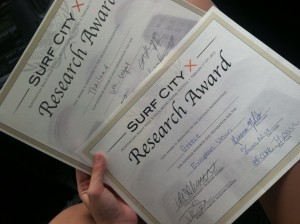Writing a position paper is like baking a cake. Just like howcakes take a lot of work to create, writing position papers may seem like a hassle because of the endless hours spent. In my experience, I have had to write from 2 to 10 pages, in regards to the length of my position papers, but—believe it or not—position papers are vital to the success of every delegate.
5 steps to writing a great position paper
1. format. FORMAT. FoRmAt.
I can’t stress enough the importance of format. After four years of Model UN, I have noticed that the format can either make or break winning a research award. Formatting is constantly overlooked because delegates are focused on writing the actual position paper. And don’t get me wrong, the content of the position paper is absolutely important, but the icing on a cake is the final details.
2. Background Information
Understand the problem is one of the first few items you will research. When writing your position paper, make sure to understand what is vital to include in this paragraph. Picking specific ingredients for this paragraph is important to your understanding of the issue in order to combat the problem. It is always smart to identify the lead up to an issue. For instance, if the topic is the North Korea and Nonproliferation then one should understand how nuclear weapons came to the forefront of our minds. Write about the first use of nuclear power until the current use, in chronological order. Then discuss the details of North Korea and their use of nuclear weapons.
3. UN Involvement
As part of the UN, your nation has either played an active role in the issue or lies distant from it. Although this paragraph is overlooked by delegates, it is vital because this is when one will be researching what solutions have been used in the past and the effectiveness of them. Do not simply just list past resolutions. Assume that your parents do not know what flour is. Expand on them to show the readers of your position paper that you truly understand what has occurred by outline that flour is white and in a paper packaging, usually. Based upon what is wanted, you may need to add Non Governmental Organizations (NGOs). Just as resolutions must be explained, don’t forget to define the effectiveness of the specific NGOs.
4. Country Policy
It is important to understand the perspective of your nations. Within this paragraph, discuss your involvement with the particular issue. In order to be organized, I advise one to summarize the lead up to the issue and your nation’s actions, if your nation is involved. After, discuss the issue in your nation if the problem is evident there. Furthermore, discuss what your nation has done to remedy the problem.
5. SOLUTIONS.
At the conference, you will be speaking about solutions for the vast majority of time, so do research possible solutions and come up with a few of your own. After finding solutions that your nation support, it is vital to explain each solution in detail and have past experiences of the effectiveness of a solution or the reason the UN should pass a resolution with the solution as an operative. It is typically hard for any nation to not agree with a solution if it has been found effective. Although money may not be an issue for a typical high school conference, finding solutions that are cost effective are more realistic and more appealing. When I say this, I do not mean that the world bank should be included in every position paper you write (as they do, as a matter of fact, have limited funds). On a last note, it is important to be on policy. Remember that you shouldn’t include your perspective, but your nation’s perspective. From my past experience, most of the points are allocated to solutions as the solutions will dictate the conference. Solutions are like the cake mix. You can’t make a cake without it.
Baking a cake can take a lot of time, but it will all be worth it once you are at the conference.


